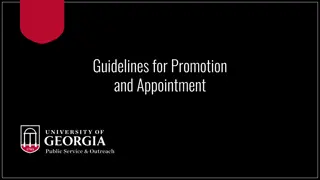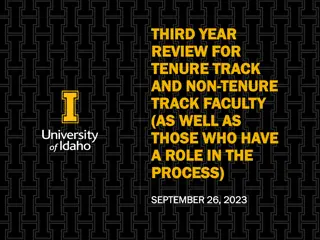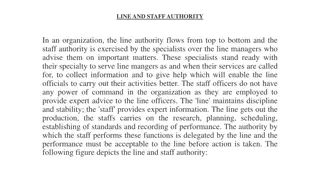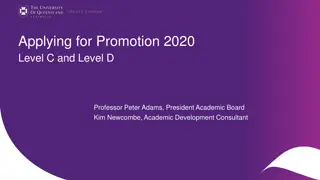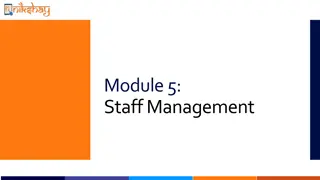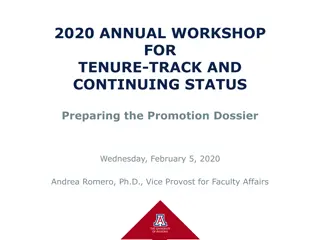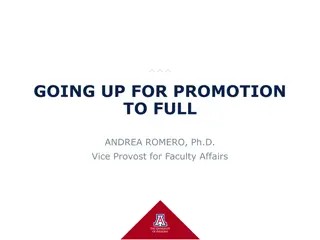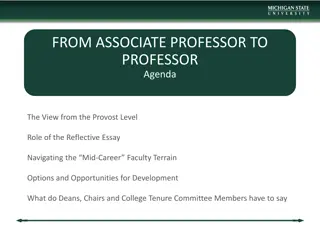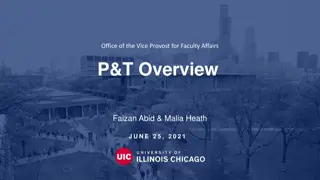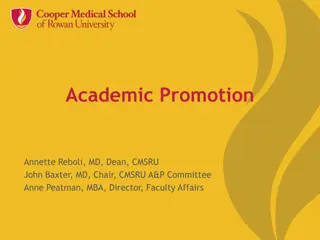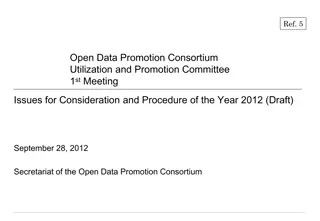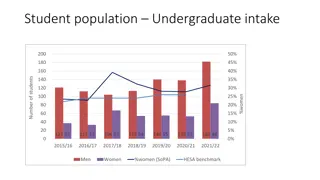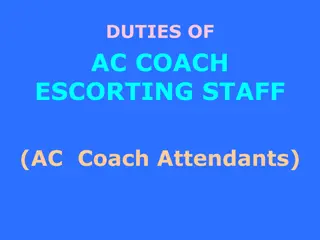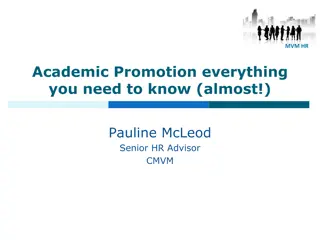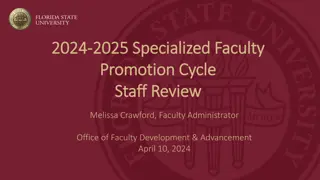Guidelines for Academic Staff Promotion: Insights and Strategies
Explore essential guidelines for academic staff promotion, from anti-plagiarism testing to collaborative publishing and enhancing visibility. Learn how reputable publishers and competent assessors play a vital role in career growth and academic integrity.
Download Presentation

Please find below an Image/Link to download the presentation.
The content on the website is provided AS IS for your information and personal use only. It may not be sold, licensed, or shared on other websites without obtaining consent from the author.If you encounter any issues during the download, it is possible that the publisher has removed the file from their server.
You are allowed to download the files provided on this website for personal or commercial use, subject to the condition that they are used lawfully. All files are the property of their respective owners.
The content on the website is provided AS IS for your information and personal use only. It may not be sold, licensed, or shared on other websites without obtaining consent from the author.
E N D
Presentation Transcript
CORE ISSUES IN THE GUIDELINES FOR PROMOTION OF ACADEMIC STAFF SIMON TEVER UBWA, PhD Professor of Food & Environmental Organic Chemistry & Deputy Vice-Chancellor (Academic) Benue State University Makurdi
Introduction Purpose of the presentation Overview of guidelines for promotion of academic staff Background to A & PC recommendations and Council approval
Anti-Plagiarism Testing Prerequisite for upholding academic integrity Responsibility of Sighting and Anti-plagiarism Committee Must be tested before the Committee s report reaches A & PC (publications shall be tested for Plagiarism at various levels of appraisal, sec. 10.2 xi)
Competent Assessors Assessors must be experts in the relevant specialization Assessors must ensure accurate assessment of scholars Assessment must reflect demonstrable competence of assessee
Enhancing Visibility Academic staff to register on Google Scholar for global visibility Benefits for staff and university include: -improved reputation, -increased opportunities for collaboration, -greater societal impact, and -international recognition
Collaborative Publishing Especially for promotion to professorial ranks Benefits of collaborative research include: -culture of cooperation, -knowledge exchange, -innovation and -mentorship (sec. 10.1, xxi), SDG4
Reputable Publishers Benefits of Publishing with Reputable Publishers: Elevates researcher s profile leading to career growth & doors for collaborations Enhances university s reputation, attracting more funding Increases global impact on research community and society at large
Prima Facie Must be reported by only professors Reports must highlight strength and weakness of each publication Reports must express academic leadership and administrative experience
Specialization-Based Publications Relevance and appropriateness for promotion evaluation Journals must reflect candidate s area of specialization
International Journals Aspiring senior academics must publish in international journals Researchers to necessarily avoid predatory journals and publishers To reflect international scholarship, expertise, local recognition and engagement
Roles of University Librarian To guide academics towards reputable publishing avenues To compile a list of reputable publishers and journals Spearhead indexing of University journals to enhance online visibility To spearhead the testing for antiplagiarism
Conclusion Recap of key points in earlier slides Emphasize the importance of adhering to these promotion guidelines Buttress the importance and benefits of compliance with acceptable standards
Thank you for listening Prof. Simon Terver Ubwa



